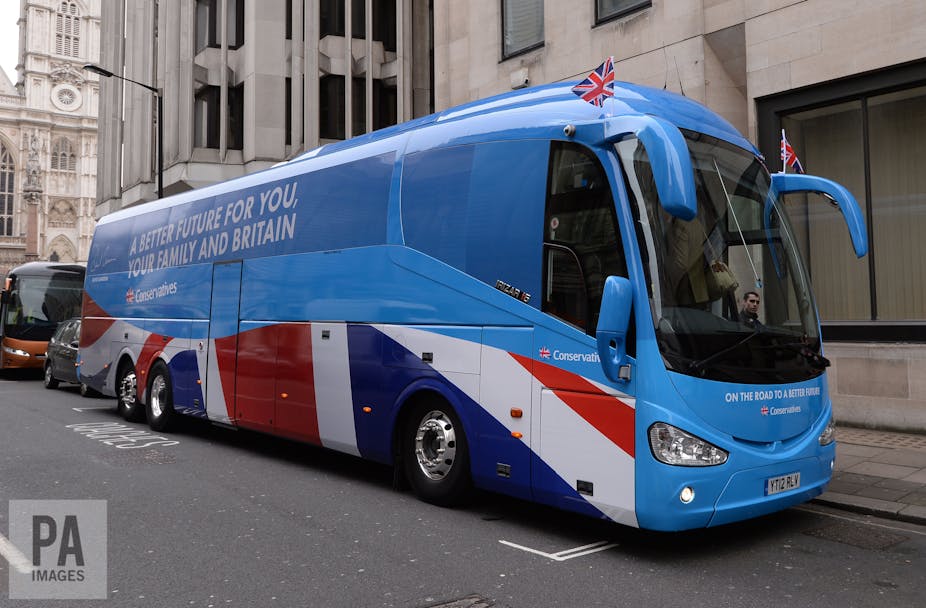The Crown Prosecution Service has ruled that no charges will be brought against Conservative Party candidates following an investigation into how 2015 campaign spending was reported.
The ruling came around ten years after several of Tony Blair’s close colleagues were arrested in the so-called “cash-for-honours” inquiry – an investigation into loans to the Labour Party and subsequent receipt of life peerages that shook the political landscape. Although the CPS brought no charges then, that episode served to throw certain loopholes and discrepancies into sharper focus.
When questioned about the utility of the police investigation into the Labour party case, then Met Assistant Commissioner John Yates offered words that seem particularly apt following this latest CPS decision:
These types of cases are very, very difficult to prove because they are bargains made in secret. Both parties have an absolute vested interest in those secrets not coming out.
This is the very challenge that faced the CPS in the Conservative election expenses probe.
Going back to the start
The accusation in the Conservative case was that the party incorrectly reported spending on a number of things – including expenses for a Battle Bus and hotel rooms for activists – as local spending when they might actually have been national expenditure. In electoral law there are (seemingly) strict rules and limits on what qualifies in each category.
In March, the Electoral Commission levied a £70,000 fine to the Conservative Party – the largest ever amount – for these discrepancies. The Electoral Commission found that three parliamentary by-elections in 2014 “understated the value” of the party’s spending. It also ruled that some payments “were not party campaign spending” and others “omitted other party campaign payments”.
That there was wrongdoing is beyond doubt. The Conservative Party did misreport some local spending as national spending – that was the specific remit of the Electoral Commission investigation. But the question for the CPS was whether that spending had been deliberately misreported and whether a mistake had been made.
The burden of proof
The specific offence which the CPS was investigating was section 82(6) of the Representation of the People Act (RPA). This states that “if a candidate or election agent knowingly makes the declaration required by this section falsely, he shall be guilty of a corrupt practice”. The CPS must prove that any suspects knew spending returns were inaccurate, and therefore acted dishonestly in signing the declaration.
In this case the CPS found that although there was evidence to suggest the returns were indeed inaccurate (essentially the findings of the Electoral Commission) there was “insufficient evidence to prove to the criminal standard that any candidate or agent was dishonest”.
Whitewash?
Within minutes of the decision being announced #toryelectionfraud was trending on Twitter, alongside accusations that both the Electoral Commission and the CPS had effectively sold democracy down the river. But this is no whitewash. The legal bar in this case was simply too high. The CPS had to effectively prove intent to mislead. That proof was not found.
The distinction between local and national expense can lead to a rather sticky wicket for the Electoral Commission to play on. Party expenditure law is, to say the least, rather complex. There can be quite legitimate disagreements around what classifies as local and national spend. These distinctions can often be quite confusing.
A perfect example from this election is the number of “wraparound” adverts that the Conservative Party has placed in local newspapers. At a glance this might look like a classic example of local expenditure. These are (presumably) aimed at a number of Conservative target seats around the country. However, because they mention only Theresa May and the Conservative Party, rather than specific constituency candidates and local issues, they classify as national spend. Like a national billboard, wrapped around a local paper.
Again, there can be legitimate arguments about whether that situation is right or fair, but there can be no arguments that it is not (legally) legitimate.
What is often forgotten when discussing the professionalisation of politics, slick campaigning machines and the potential of shadowy electoral conspiracies, is that much of the donkey work on campaigns is done by volunteers. In recommending regulation, there has to be a fine line between catching genuine dishonest intent and discouraging civic engagement. There’s no point in prosecuting poor Doris or Derek from the local constituency party because they offered to be the treasurer that year (when no-one else volunteered) for not fully grasping the ins and outs of the Political Parties, Elections and Referendums Act or the RPA.
What now?
An investigation in Thanet is ongoing, but in all other respects: case closed. But while the Conservative funding is not – and should not – be considered a whitewash, it should be cause for concern. There seems to be a genuine case to (re)investigate whether electoral law is fit for purpose.

In its summary decision in March, the Electoral Commission noted the risk that “political parties might come to view the payment of these fines as a cost of doing business”. Indeed, academic work analysing the 2015 election suggests that national campaign spending is now a highly targeted effort which largely supported constituency campaigns. That, to all intents and purposes, the difference was cosmetic.
Karl McCartney, one of the MPs cleared in this case, suggested that the Electoral Commission should be abolished. A more sensible solution would be for all parties to get around the table, with the Electoral Commission and others, and understand where the weaknesses in the current regulation is and work at updating and improving legislation which today is unfit for purpose.

